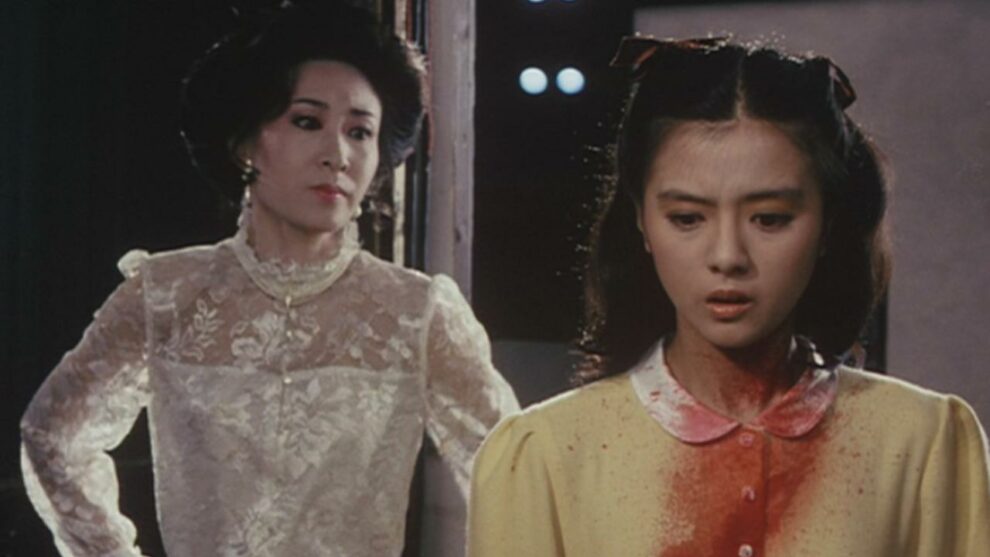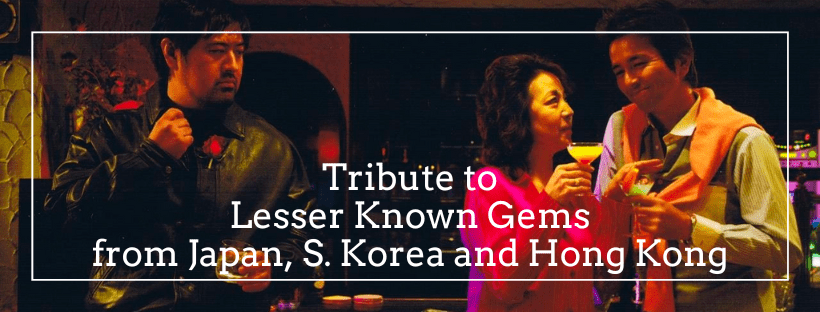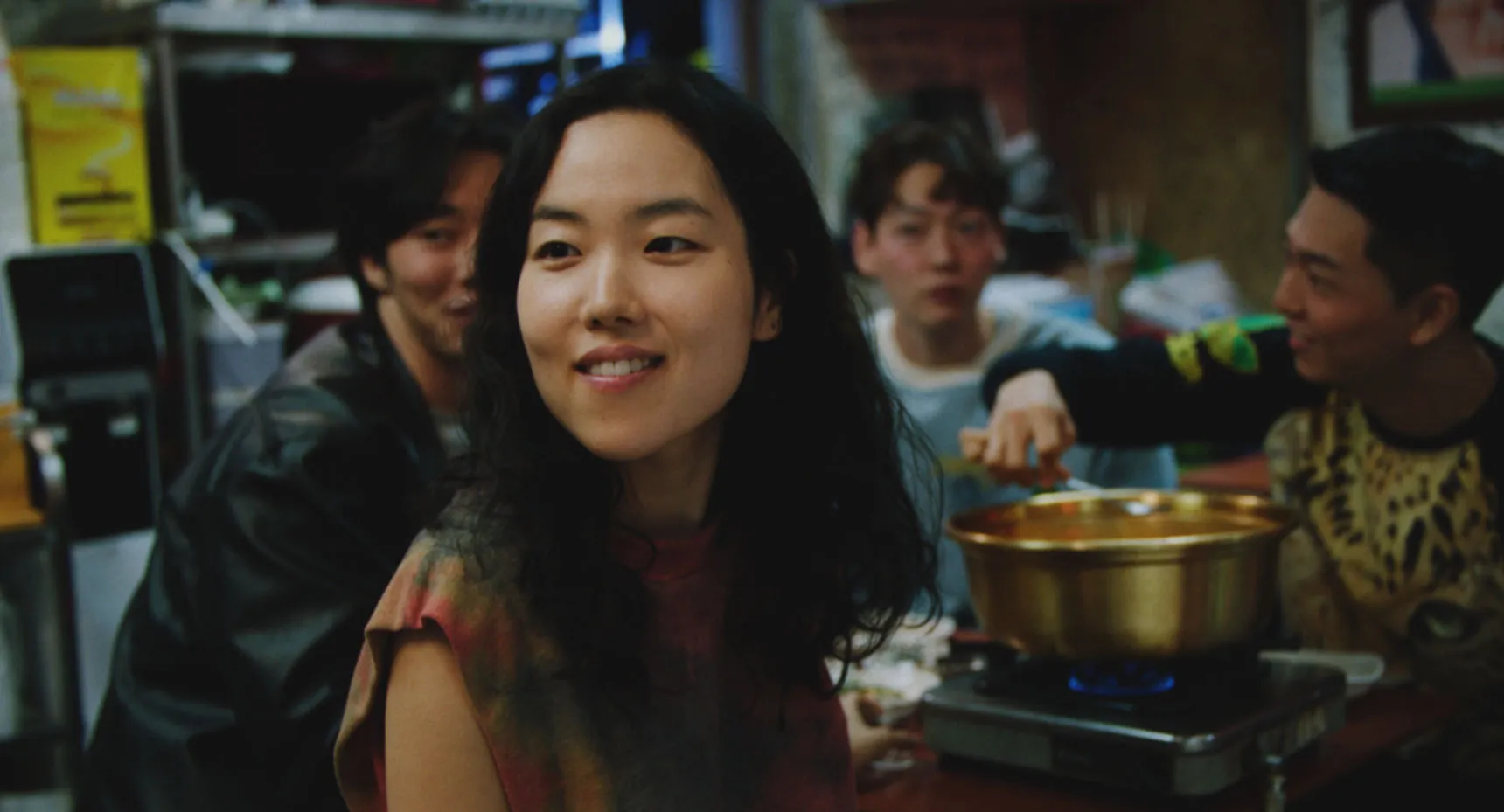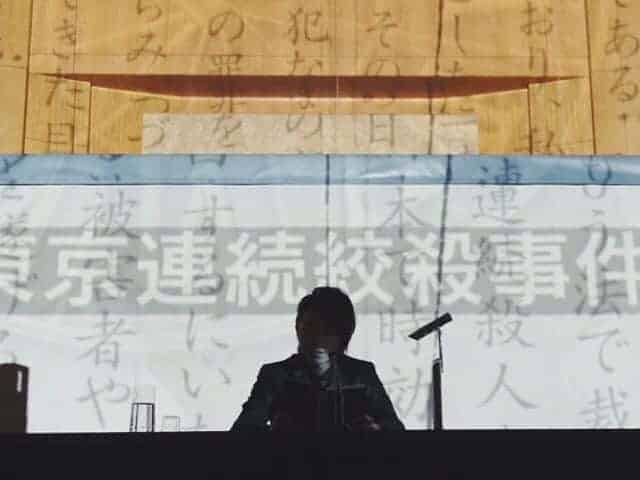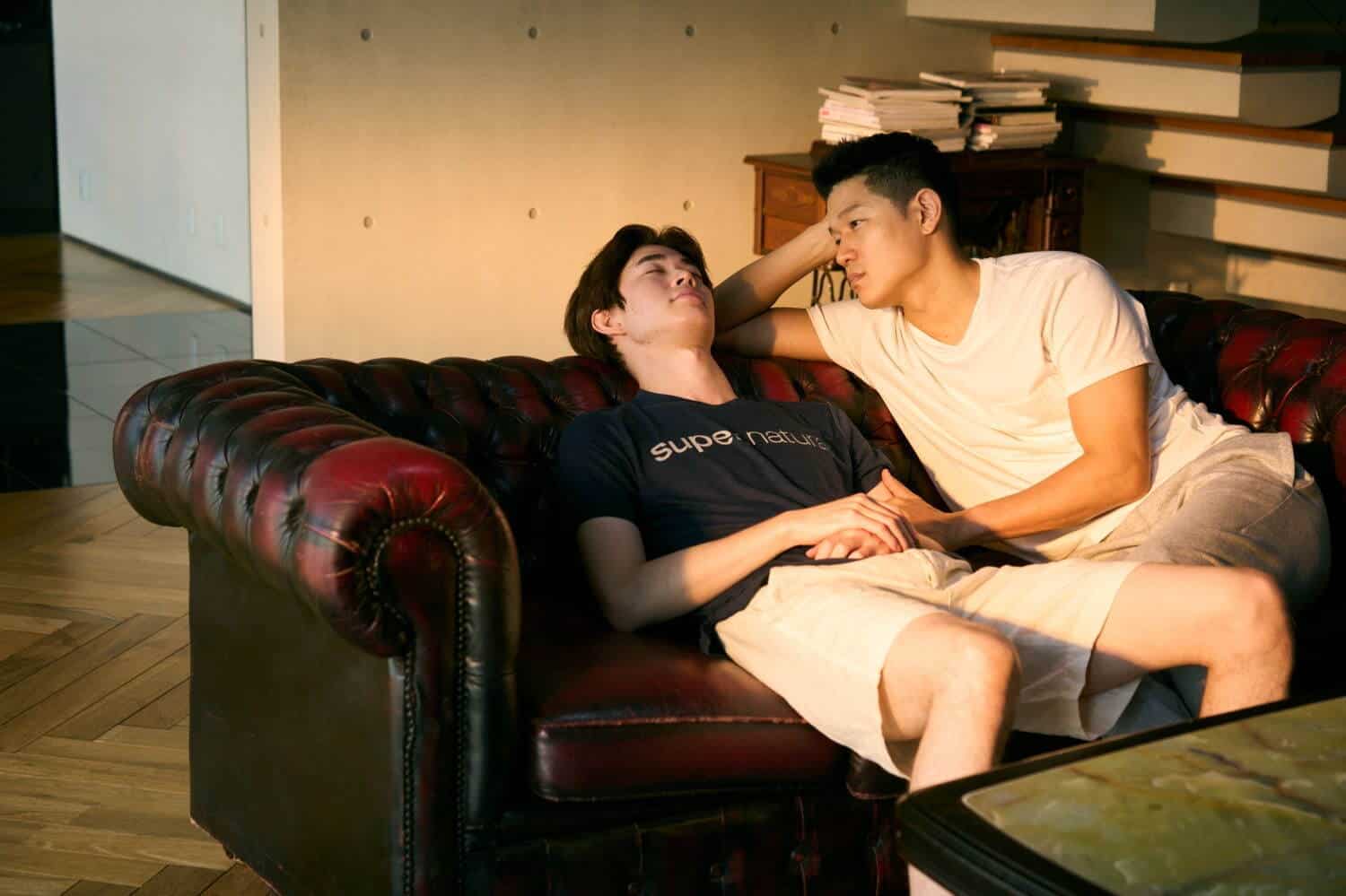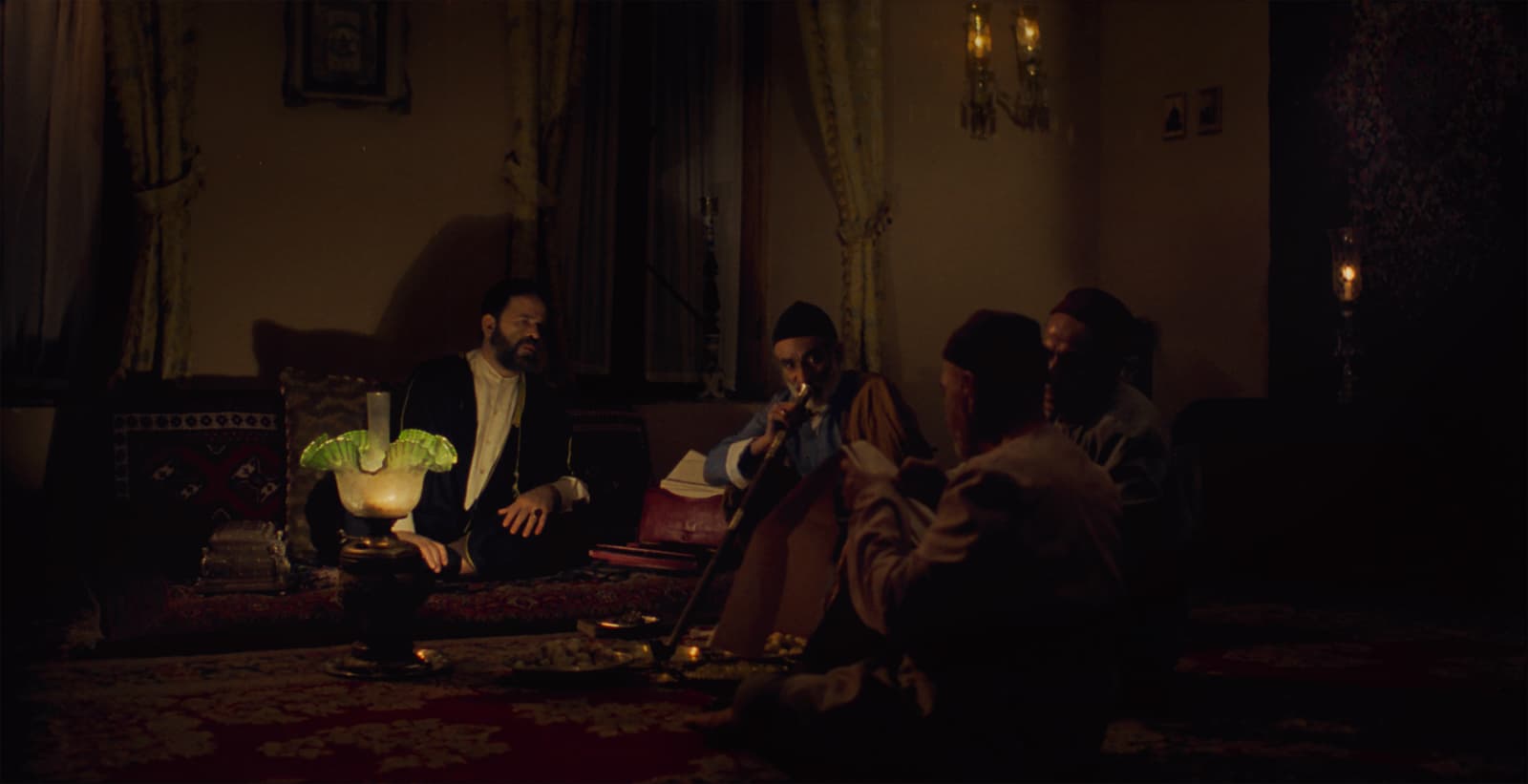Winner of a number of awards from the Japanese Academy, Kinema Junpo, Mainichi and Blue Ribbon, “W's Tragedy” is based on Shizuko Natsuki's “Murder at Mt Fuji” but essentially takes the film within a film (within a stage play actually in this case) in one of the most successful titles of Kadokawa's pop experimentalism.
Natsuki's original book, the story of a rich family torn apart by the murder of their patriarch, and their heiress being accused of the crime, becomes a play and is acted out by a troupe of actors in Osaka. Shizuka Mita is a young, ambitious actress, who aims at taking a central role, that of rich heiress Mako Watsuji, which ends up, though, to another young actress, Kaori. A saddened Shizuka finally succumbs to the woes of Akio Morita, a man who had met her accidentally on the street and started flirting with her, spending one night with him. Her eagerness to become a star, however, has her wooing Jun Godai, a star actor who has taken the role of investigator Ukyo Nakazato in the play, although this fact does not seem to deter Akio. Eventually, and after a tragic incident involving the female star of the show, Sho Hatori, Shizuka is forced into an opportunity to step up.
Films about how the stardom works, both in cinema and theater, are not exactly rare in either, but the approach Shinichiro Sawai implements here in order to make his comments, is as ingenious as it is original. Essentially, what is happening in the story, particularly after the aforementioned incident, is that the actors start resembling the characters of Natsuki's book, with the same applying to the events that occur. As such, and as the movie moves towards its zenith, the stage play actually comes to life in the lives of the actors, with Sawai weaving the two together in the most elaborate fashion, in definitely the best aspect of the film.
Check also this interview
Furthermore, this approach also allows him to present the aforementioned comments in eloquence. The dog-eat-dog world of show business is thus presented in the bleakest colors, with the antagonism between the actors for the biggest role leading them to sex, violence, and all kinds of intense actions, to the point that some of them end up losing their mind completely, having lost their integrity much before. That Akio's idealism essentially has led him outside the field also moves in the same direction, while the reaction of the cast when a scandal surfaces highlights that there is very little comradeship among the troupe. Furthermore, the way the stars look down on the rest of the cast and crew and the way the director mistreats even them are also showcased in subtle, but also eloquent fashion, concluding the rather dark image of the field.
The same could also be said of Akio's role, who proves to be a much kinder and more decent individual from them all, with the fact that he is outside the theater adding to the whole previous comment. At the same time, though, his relationship with Shizuka is somewhat awkwardly presented at times, maybe hinting at an element that was included to lighten the mood of the movie, with the ending actually moving towards the same direction.
On the other hand, Hiroko Yakushimaru as Shizuka Mita truly shines through her back-and-forths and indecisiveness regarding her relationship with Akio, in probably the most appealing aspect of an overall adorable presence and quite competent performance. Masanori Sera as Akio is not bad, but his role is not that well-written, something that definitely has an impact on his performance. Yoshiko Mita as Sho Hatori is great, both on stage and outside of it, with her acting being one of the main sources of the general theatricality that permeates the whole narrative.
Seizo Sengen's cinematography captures the aforementioned theatricality in the best fashion, while highlighting the antithesis of the suffocating setting of everything revolving around the theatre, with the scene with the incident in the hotel being a highlight, and the almost idyllic sense outside of it. Kiyoaki Saito's editing results in a relatively fast pace that definitely communicates the tension that the theater arc includes, with the announcement of the roles scene being its zenith. The ending, however, could have been a bit tighter, not to a point that faults the movie significantly, though.
“W's Tragedy” is a very smart, very well-shot, and very well acted movie, that manages to present its rather interesting comments through an intriguing approach that makes the whole thing entertaining from beginning to end.


